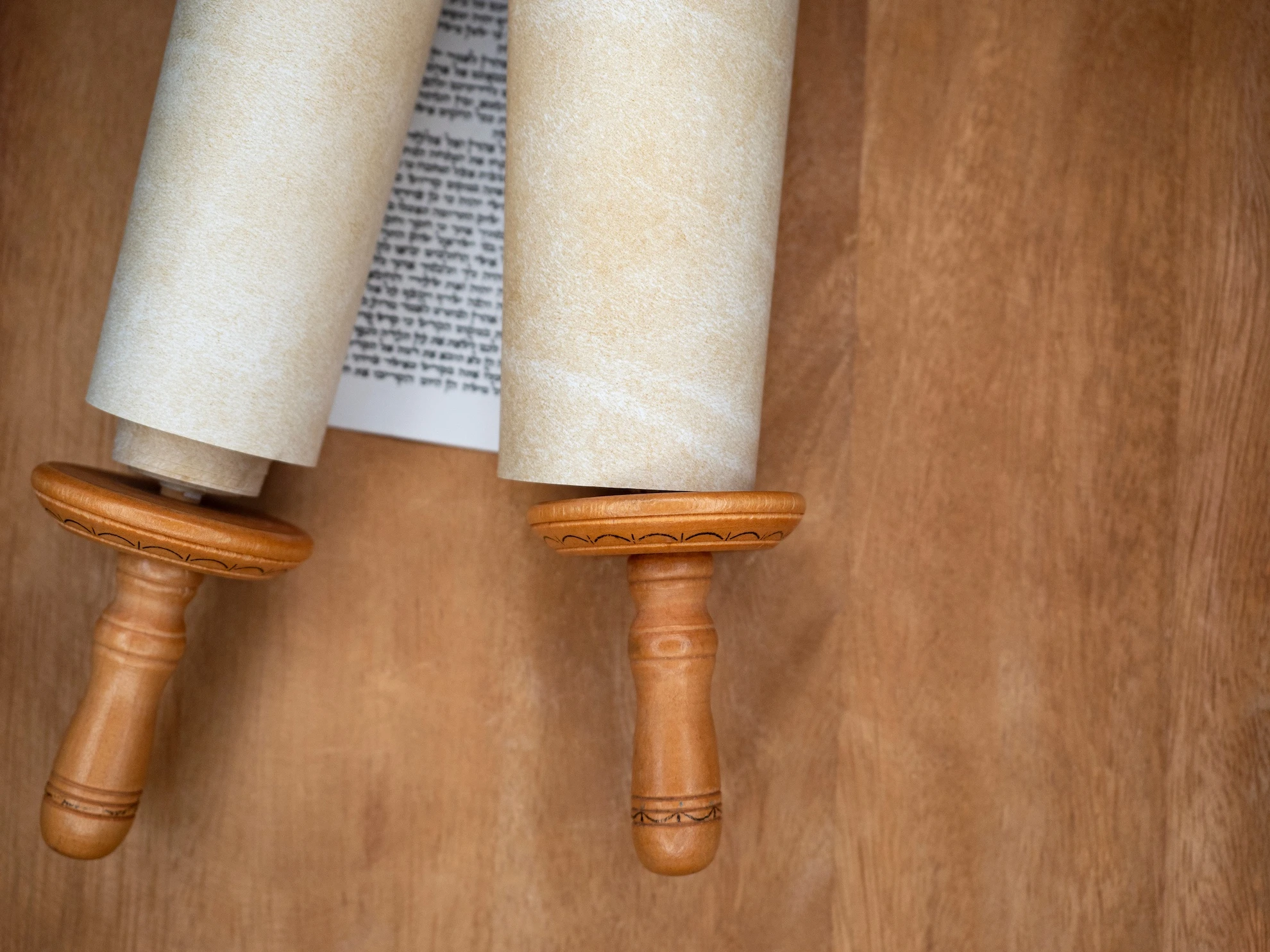
Ancient Wisdom and Christian Connection
For thousands of years, Jewish sacred scrolls have served not only as vessels of scripture, but as deeply spiritual instruments—bridges between the physical and divine. These scrolls, handwritten in Hebrew by skilled scribes, are more than mere text; they are vessels of holiness. To Jews, they bring blessings, protection, and spiritual alignment. Yet for Christians seeking to understand the Hebrew roots of their faith, these scrolls offer a profound window into the covenantal relationship between God and His people, from the time of Moses to the present day.
In particular, the Mezuzah—a small parchment affixed to doorways—and Tefillin, leather-bound scrolls worn during prayer, have resonances that can be appreciated even outside their traditional Jewish observance. In a world increasingly hungry for authentic connection to sacred tradition, these ancient practices speak powerfully to Christians—illuminating the spiritual continuity between the Old and New Testaments.
What Is a Mezuzah?
The word mezuzah (מְזוּזָה) literally means “doorpost,” but it refers to a small scroll containing handwritten verses from Deuteronomy 6:4–9 and 11:13–21, known as the Shema and Vehaya. These verses declare the unity of God and command that His words be inscribed “on the doorposts of your house and on your gates.”
According to Jewish tradition, the Mezuzah is not a talisman, but a divine commandment—one that serves as a constant reminder of God’s presence, both at home and beyond. It is often touched or kissed upon entering or leaving a doorway, symbolizing the alignment of one’s daily life with God’s word.
Though unfamiliar to most Christians, the idea of marking one’s home with holy words echoes Exodus 12, when the Israelites marked their doorposts with blood during the first Passover for divine protection. In this way, the Mezuzah stands as a living symbol of covenant—a daily affirmation that a home belongs to God.
Tefillin: Binding the Word to the Body
Tefillin, also known as phylacteries, are small black boxes containing the same Torah verses found in the Mezuzah. They are worn by observant Jewish men during weekday morning prayers—one bound to the arm, near the heart; the other to the head, near the mind. The physical act of binding these sacred texts to the body is a literal fulfillment of the command in Deuteronomy 6:8: “You shall bind them as a sign upon your hand, and they shall be as frontlets between your eyes.”
For Christians, this may resonate with Romans 12:1–2, where the Apostle Paul speaks of offering the body as a living sacrifice and renewing the mind. The idea of dedicating one’s thoughts and actions to divine service finds visible, embodied expression in the practice of Tefillin. Though not practiced in Christianity, the symbolism of Tefillin helps illuminate the Jewish roots of Christian spirituality—especially in the realms of prayer, devotion, and the embodiment of Scripture.
The Scrolls as Living Testimony
Unlike printed books, sacred Jewish scrolls are handwritten by trained scribes known as soferim, who undergo years of halachic (legal) and spiritual training. Each letter must be formed with exacting precision. A mistake or missing stroke can render the entire scroll invalid. This meticulous care reflects the deep reverence with which Scripture is to be treated—a value shared by both Jews and Christians.
In Jewish mysticism, especially the teachings of Lurianic Kabbalah, each letter of the Hebrew alphabet is considered a vessel for divine light. When a Mezuzah or Tefillin is written with holy intention (kavanah), the scroll becomes more than text—it becomes a spiritual instrument, a beacon of divine presence.
A Modern Link to Ancient Tradition: mezuzakamea.com
In today’s world, where sacred traditions risk being diluted or commercialized, finding authentic sources for spiritual items is increasingly rare. Mezuzakamea is one such rare treasure. This website offers kosher Mezuzot, Tefillin, and sacred scrolls written by an expert sofer deeply trained in both halachic precision and Kabbalistic intention.
What sets mezuzakamea.com apart is the spiritual discipline of its scribe. Writing sacred scrolls is treated not as a craft, but as a sacred mission. The scribe immerses in a ritual bath (mikveh) before writing, often fasts on writing days, and enters into prayer and seclusion to elevate the spiritual purity of the work. He invokes Divine Names with intention to sanctify each word—ensuring that every scroll is not only halachically perfect, but spiritually alive.
For Christians interested in biblical heritage, these scrolls offer a rare connection to the world of the Bible—not in metaphor or abstraction, but in tangible, living form. The very same words commanded by God to be written thousands of years ago are still being penned by hand today—using the same sacred language, materials, and protocols.
Parallels in Christian Faith
While Christianity does not include scrolls or Mezuzot in the same ritual form, strong parallels exist. The practice of placing Scripture verses on walls, wearing crosses or jewelry inscribed with biblical text, or engaging in spiritual disciplines around sacred writings all echo the Jewish traditions of binding, marking, and remembering.
Moreover, Jesus himself, as a devout Jew, would have worn Tefillin, read from handwritten Torah scrolls, and lived in homes with Mezuzot on the doorposts. For Christians, understanding these practices is not about adopting them, but about deepening appreciation for the cultural and spiritual world that Jesus and his disciples inhabited.
A Shared Heritage of Holiness
Jewish sacred scrolls are not relics—they are living traditions, tangible expressions of a covenant still alive. For Jews, they are daily acts of remembrance and sanctification. For Christians, they are powerful symbols of the shared spiritual legacy that underpins both faiths.
In a world where so much feels fleeting and disconnected, these scrolls remind us of the enduring nature of the divine word—handwritten with awe, devotion, and generations of faith. Whether admired for their craftsmanship, scriptural depth, or spiritual energy, sacred Jewish scrolls—like those offered through mezuzakamea.com—invite believers of all backgrounds to reconnect with the eternal voice of God that continues to speak through the ancient Hebrew alphabet.
